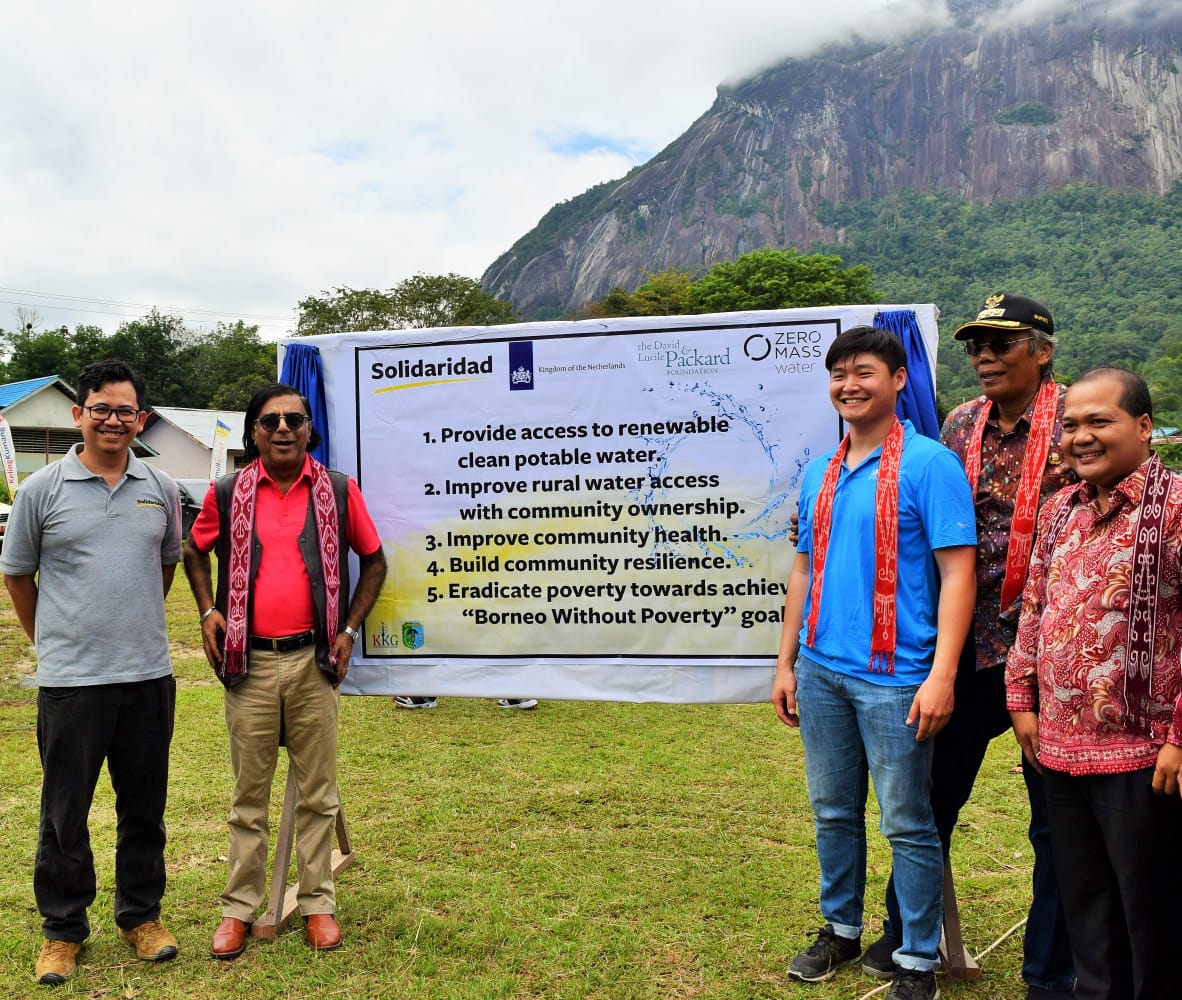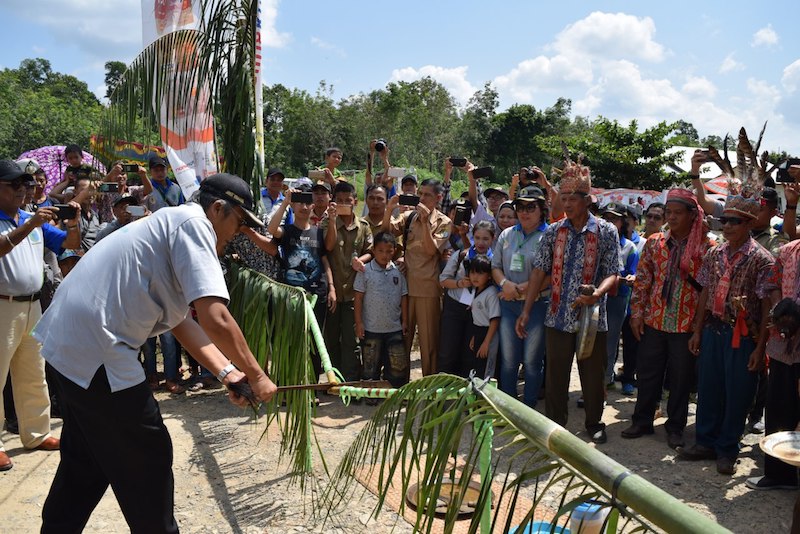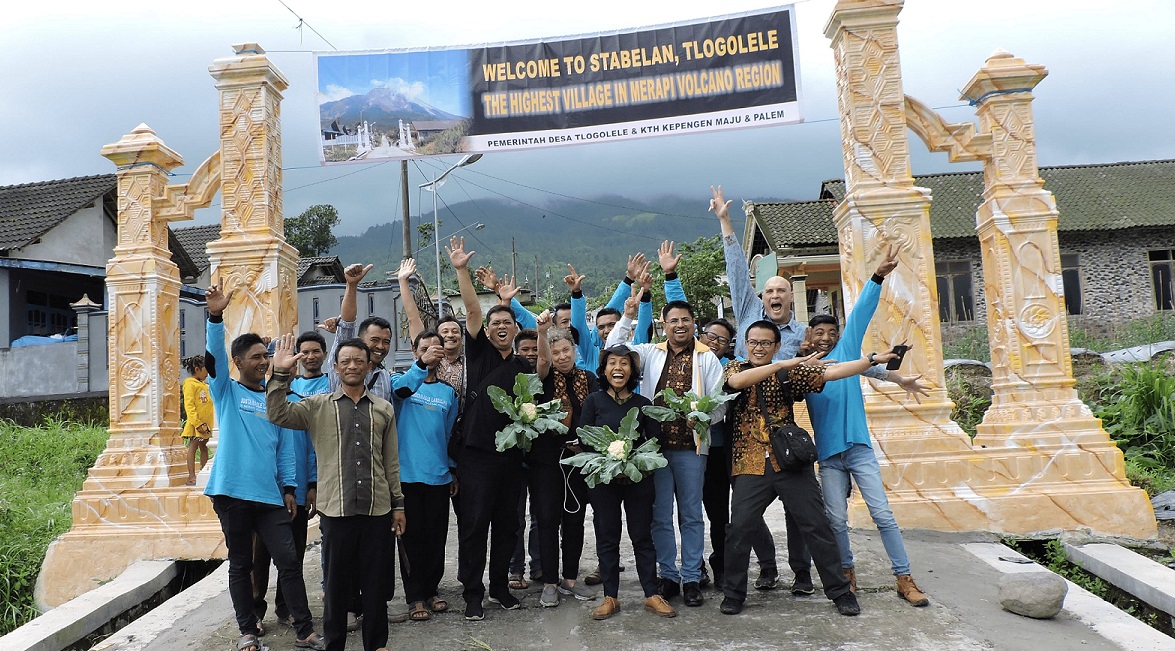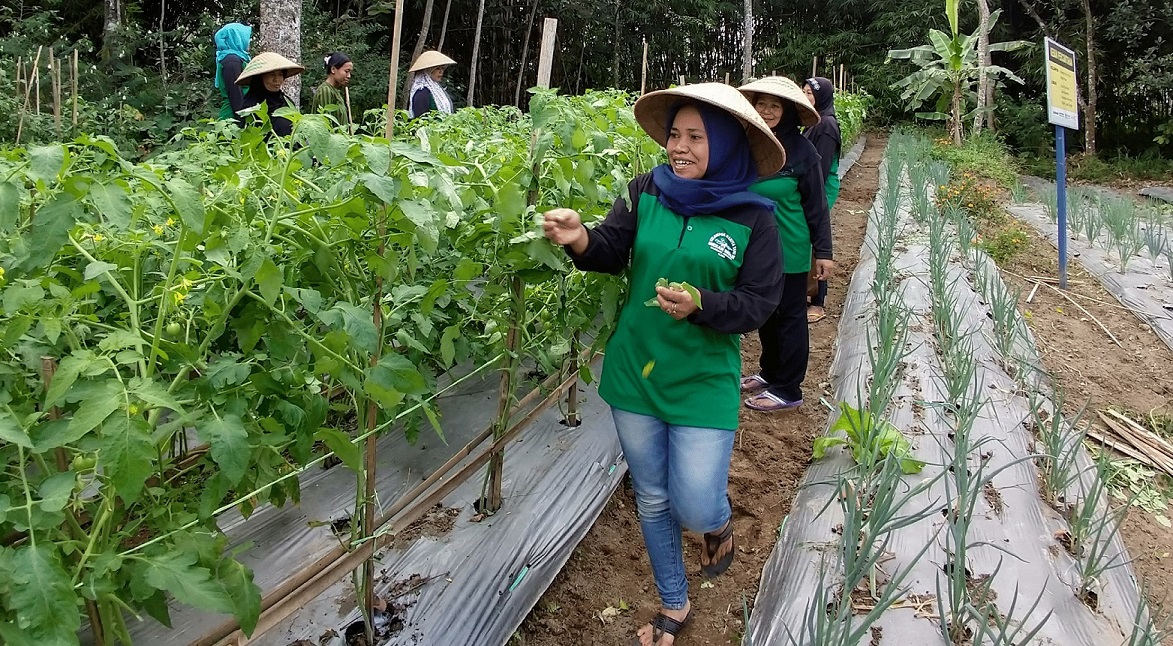
Solidaridad experts and partners on location at the first Green Village
In line with its integrated landscapes agenda for protecting the most vulnerable regions and biomes, Solidaridad is supporting Indonesian conservation efforts with several multi-year programmes backed by diverse stakeholders in business, government and the local communities. The Green Villages programme encourages farmers to adopt a sustainable lifestyle throughout their communities, while the landscapes programme in the Merapi region helps small farmers conserve the unique and fragile volcanic forests found in Indonesia.
Solidaridad guides farming businesses situated near these agroforestry frontiers in avoiding further poverty-driven deforestation. In its approach to sustainability, Solidaridad seeks to bundle solutions – climate-smart agriculture, local agroforestry business, community-based and democratic management, blended finance, local governance, local IT – to reach out to poor villagers, while also reducing pressure on tropical forests.

Inauguration of the first climate-smart village
Green villages encourage an eco-friendly lifestyle
Launched in 2018, the Green Villages programme in West Kalimantan is expected to become an example for other villages on how to improve living conditions while also protecting the environment and reducing greenhouse gas emission.
The model community not only uses good farming practices, but it also maintains practical sustainability measures for other daily activities in the village such as sanitation, waste management, and plastic pollution control, in particular. Through collaboration with Dinas Education and local schools, Solidaridad provides environmental education for children and helps create school gardens.
The goal of these guided agroforestry communities is to mitigate and adapt to climate change by:
- increasing carbon storage through forest replanting with economic-benefitting trees
- improving clean water accessibility with innovative renewable technology
- increasing livelihood with smart oil palm farming and bee-farming activities
- enhancing adaptive capacity through soil management & conservation
- embedding climate change awareness in the culture through education at schools
This approach to climate-smart villages is made possible by support from BASF, Henkel and the Packard Foundation, and forms part of the Indonesian government’s commitment to climate change mitigation.
Forest conservation is a primary aspect of the programme and is managed by local communities themselves. Villagers are in charge of conserving forest areas, reducing damage to their local forest, and using environment-friendly farming techniques in order to achieve their zero-deforestation commitment.
To help ensure that green villages become the norm in Indonesia, Solidaridad is aligning its activities with the national programme, ProKlim: “The Climate Village”. In this collaboration, Solidaridad supports the government in establishing and monitoring carbon dioxide emission reduction driven by the pro-climate villages, as well as integrating climate awareness at the bottom rungs of society, the village farmers.

Merapi Volcano Project Team
Volcanic forests require special care
Indonesia is also home to some of the most active volcanoes in the world. The young forests that regrow after volcanic disruptions are rich and fertile. Protecting the unique native vegetation in this region forms an important aspect of Solidaridad’s sustainable landscapes approach.
In collaboration with Business Watch Indonesia and the Mount Merapi National Park Agency, Solidaridad programmes have consistently encouraged the community of buffer villages in Merapi to conserve the native vegetation, including Berasan (Tarrenoidea Wallichii) – a special tree able to tolerate the mountain’s volcanic ashes.
Forest conservation in the Merapi region makes use of the following approaches in an integrated manner:
- Low carbon agriculture practices
- ICT development
- Policy advocacy/lobbying
- Multi-stakeholder platforms for dialogue
The capacity building activities included in the programme improve farmers’ performance and knowledge of low carbon agriculture, plantation business management, market development and financial literacy.

Low carbon vegetable farming on the Merapi landscape
“In the first place, by planting coffee in the forest, the community will receive extra income. Secondly, a forest cover will be created to protect farmers’ livelihoods in this ecologically vulnerable area. Thirdly, it helps to halt damage to the environment in Tlogolele village,” said Widodo, a village chief participating in the programme.
The programme continues to expand thanks to support from the Dutch government and now covers the upper part of Merapi as well as its neighbouring volcano, Merbabu. Current programme goals are to strengthen local communities by improving soybean and vegetable farmers’ business knowledge, skills and performance through a training series for at least 200 female and male farmers.
Learn more about sustainability in Asia
This article is second in a series on deforestation and poverty. Deforestation is responsible for 15% of the world’s greenhouse gas emissions. With the support of the Good Energies Foundation, Solidaridad is working in three key forest biomes to reduce deforestation: the Amazon in Brazil, the Malay Archipelago in Indonesia and the Congo Basin. Small farmers have a large role to play in saving our forests in these areas. Solidaridad works with communities in these tropical forest regions to tackle poverty and deforestation.
Part 1:
Made possible by:

